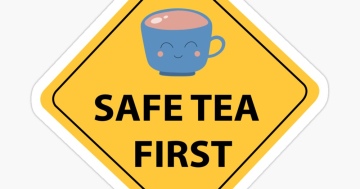Research is revealing that Millennials are in worse health than their older counterparts. Ashley Stahl* says that’s bad news for the economy, but worst of all, for the Millennials themselves.
 Millennials (born 1980-2000) are the largest and most educated generation — they are also the most unhealthy.
Millennials (born 1980-2000) are the largest and most educated generation — they are also the most unhealthy.
Despite the fact that many Millennials are all about their yoga boutique trends, green juices, and meditation memberships, they are in worse health than their older counterparts, Generation-X (born 1965-90).
The wellness trend isn’t translating into actually being healthy, according to research.
A study conducted by Blue Cross Blue Shield estimates that without intervention, Millennials could see mortality rates increase to 40 per cent more than Gen-Zers at the same age.
Millennial’s behavioural health is becoming a widespread concern.
Rates of major depression have increased by 31 per cent, rates of psychotic conditions have increased by 15 per cent, and rates of substance use have risen by 10 per cent.
The unfortunate truth here is that overall health appears to be worse for female Millennials compared to their male counterparts, especially in regards to major depression, Type 2 diabetes, and endocrine conditions.
It doesn’t stop here, though.
Depression, anxiety, and loneliness are on the rise for Millennials, and all generations.
Given that Millennials make up the majority of the workforce, their overall health will largely impact the entire economy’s health.
Unhealthy employees are less productive, and their lower health levels could cost Millennials more, which means they will have less to spend on entertainment and clothes.
All this will hurt the economy, so it’s time to consider what you can do today to improve your health.
Reduce your screen time
There is no secret that Millennials are some of the most connected people online today.
Yet 30 per cent have reported always or often feeling lonely while 27 per cent say they have no close friends.
A University of Pennsylvania study has found a strong correlation between increased time spent on social media and decreased wellbeing.
To combat this loneliness, dedicate time away from your social media in order to work on building face-to-face connections.
Another study has found that along with diet, exercise and adequate sleep, a sense of community is what keeps people healthy.
Don’t limit it to people just your age.
Build relationships with your grandparents, and don’t forget your younger family members.
Many young professionals live far away from their immediate family, which makes it all the more important to establish new relationships and a sense of community.
Start to attend meet-up groups, join a community-focused gym or become a member of a networking group that meets regularly.
If stepping away completely from social media sounds too difficult, or perhaps it is a necessity for your business, simply take note of how you use it on a daily basis.
Create a niche community you can connect with, as opposed to scrolling through random sites and strangers profiles.
The key here is quality over quantity.
Visit your doctor
Preventative health matters.
This is something that hasn’t seemed to catch on with Millennials considering that two-thirds of them report not going to a doctor until they are in need of urgent care.
I’m no health expert, but I can confidently state that there are some great advantages to visiting a doctor annually, even if you don’t feel ill.
They can perform blood tests, check your blood pressure and run an MRT test to learn what causes allergies and inflammation specific to you.
An overall examination today goes far beyond listening to your breathing with a stethoscope.
You might have been running around all year without taking the time to notice a small mole changing colour or that your heart was literally skipping beats.
There are many illnesses, such as cervical cancer, that if caught early can be easily treated, but if left untested turn serious.
Consider your health before your finances
It might be tempting to forgo private health care, especially if you don’t have a serious illness.
Health insurance plans can be expensive and you might be thinking about all the great things you could do with that money instead.
However, realise you are the most important thing you can invest in, not your house, not your social media profile.
If your physical isn’t working, you cannot perform on a mental level.
Being healthy is the greatest gift and most rewarding investment you can give yourself.
*Ashley Stahl is a career coach, keynote speaker, podcast host and author. In a previous life she was award-winning counter-terrorism professional. She can be contacted at ashleystahl.com.
This article first appeared at forbes.com.











